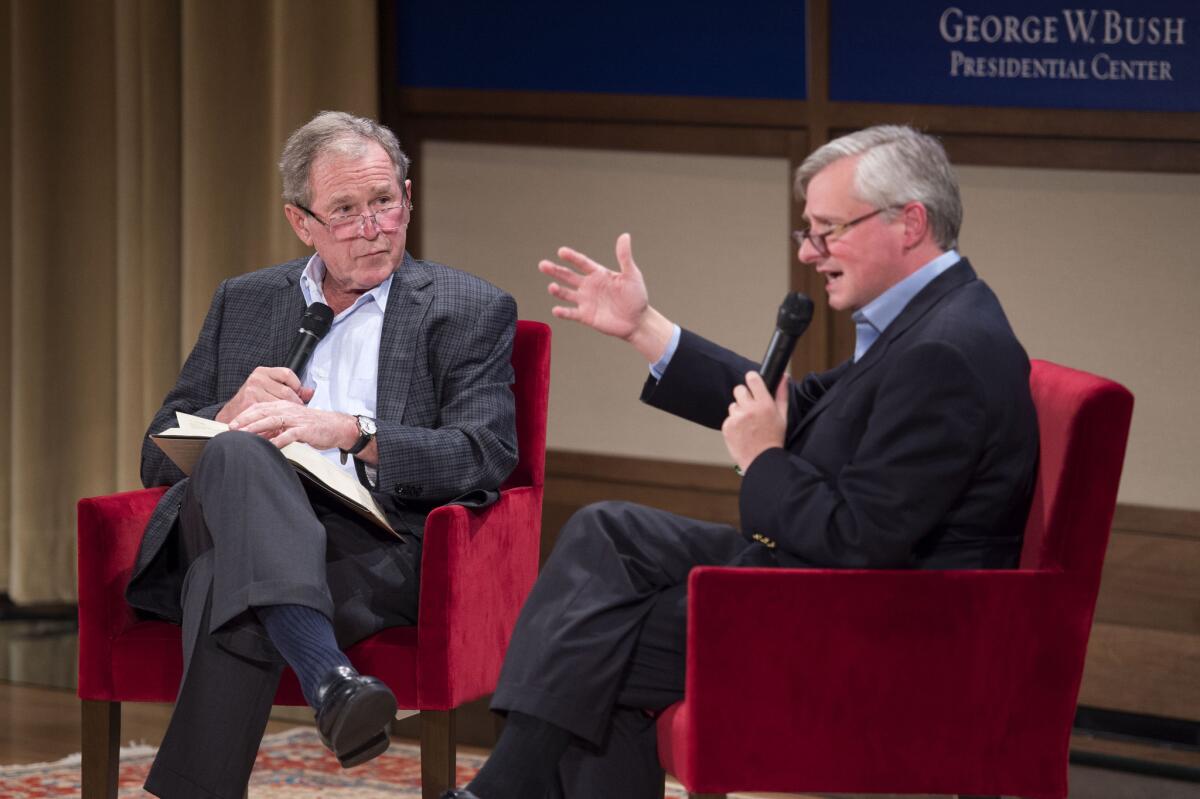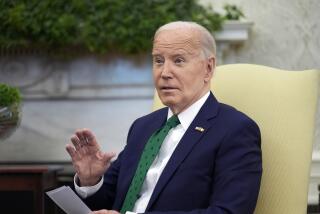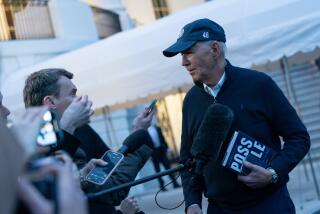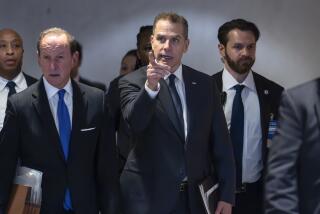George W. Bush talks with his dad’s biographer about influence in his own presidency

Former President George W. Bush, left, listens to author Jon Meacham talk about his biography of Bush’s father, former President George H.W. Bush.
Former President George W. Bush acknowledged Sunday that he may have downplayed how much he sought advice from his father during his presidency, a sign of the influence George H.W. Bush still has over his son.
It was a reminder that the father’s legacy could have a powerful impact if another of his sons, Jeb Bush, wins the White House.
George W. Bush made the comments in a public forum Sunday, talking about his father’s biography with the book’s author, Jon Meacham.
Meacham recalled a conversation with George W. Bush for the book: “I think you downplayed at times how much you talked to your dad.” The younger Bush nodded his acknowledgment.
The forum at the George W. Bush Presidential Center in Dallas touched on the father’s early career as a Navy pilot, his disappointing loss to former President Clinton in 1992 and his reflections on his son’s tenure in the White House. The talk came two days before the release of Meacham’s “Destiny and Power.”
In the book, former President George H.W. Bush criticized his son for setting an abrasive tone on the world stage and failing to rein in hawkish Vice President Dick Cheney and Defense Secretary Donald H. Rumsfeld. That sensitive topic was not addressed in the Sunday forum, where the younger Bush was asking the questions.
The biography is the fullest account yet of the elder Bush, the only modern former president not to write a full-length memoir. It draws on diaries Bush kept from the 1960s to the 1990s and interviews the author conducted from 2006 to 2015.
On some days Bush sounded like he was “a step away from the grave,” Meacham said, referring to the exhaustive schedule the elder Bush kept. Meacham praised him for his candor in recording his own history.
“This is a man who turned on the tape recorder and told the truth. Even when he was having the worst possible day he would talk himself back into the game,” Meacham said, citing Bush’s discouraged but determined diary entry on the evening he lost his bid for a second term as president.
Toward the end of the discussion, George W. Bush and Meacham turned to George H.W. Bush’s reflections on his son’s presidency.
In the book, the elder Bush says that Rumsfeld “served the president badly” when George W. Bush was in the White House and that Cheney “built his own empire” and asserted too much “hard-line” influence.
He worried about his son’s “cowboy image,” Meacham writes.
“I do worry about some of the rhetoric that was out there — some of it his, maybe, and some of it the people around him,” Bush said in the book.
Bush disliked the term “axis of evil,” which George W. Bush used to refer to Iraq, Iran and North Korea in his 2002 State of the Union address.
During his son’s years in office, George H.W. Bush devoured the news.
“There’s another difference: I didn’t read the New York Times,” the younger Bush told Meacham with a chuckle.
More to Read
Start your day right
Sign up for Essential California for news, features and recommendations from the L.A. Times and beyond in your inbox six days a week.
You may occasionally receive promotional content from the Los Angeles Times.






